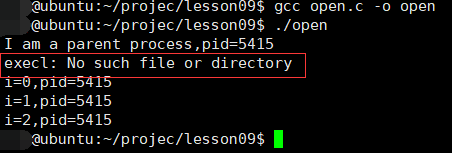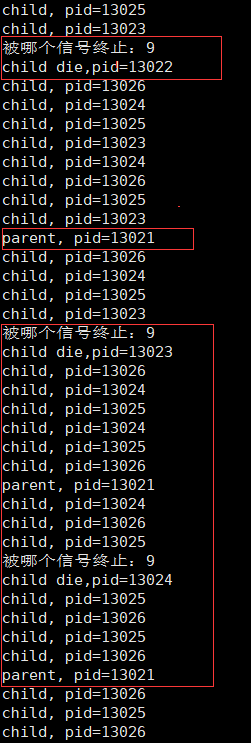目录
exec函数族作用图解:
execl函数:
execlp函数:
execv函数:
execve函数:
一系列功能相同或相似的函数统称为函数族。

exec函数族的一般使用方法:先fork一个子进程,然后在子进程中调用exec函数族中的某个函数。
exec函数族作用图解:


调用成功后,从a.out的main函数开始执行。

前6个为标准C库函数,最后一个为linux库函数。
execl函数:
#include <unistd.h>
int execl(const char *path, const char *arg, ...);
参数:
-path:需要指定的可执行程序的路径或名称
如a.out /home/a.out,推荐使用绝对路径
-arg:是执行可执行文件所需要的参数列表
第一个参数一般没有什么作用,为了方便,一般写的是执行的程序的名称
从第二个参数开始往后,就是程序执行所需要的参数列表
参数最后需要以NULL结束(NULL也称为哨兵)
返回值:
只有当调用失败,才会有返回值,返回-1,并且设置errno
如果调用成功,没有返回值
hello.c:
#include <stdio.h>
int main()
{
printf("hello\n");
return 0;
}open.c:
#include <stdio.h>
#include <unistd.h>
int main()
{
//创建一个子进程,在子进程中执行exec函数族中的函数
pid_t id=fork();
if(id>0)
{
printf("I am a parent process,pid=%d\n",getpid());
sleep(1);
}
else if(id==0)
{
int ret=execl("hello","hello",NULL);
if(ret==-1)
{
perror("execl");
return -1;
}
printf("I am a child process,pid=%d\n",getpid());
}
for(int i=0;i<3;i++)
{
printf("i=%d,pid=%d\n",i,getpid());
}
return 0;
}在open.c中用execl调用hello这个可执行程序。
运行结果:

execl函数可以执行自定义的可执行程序:要么可执行程序在目录中,要么输入绝对路径
execl函数可以执行系统自带的可执行程序:只能输入绝对路径
如执行ps aux命令,只能写成execl("/bin/ps","ps","aux",NULL);,而不能写成execl("ps","ps","aux",NULL);
否则,找不到文件或目录,如下:

如果不想写绝对路径,可以使用下面的execlp函数。
execlp函数:
#include <unistd.h>
int execlp(const char *file, const char *arg, ...);
会到环境变量中查找指定的可执行文件,如果找到了就执行,找不到就执行不成功
参数:
-file:需要执行的可执行文件的文件名
open.c:
#include <stdio.h>
#include <unistd.h>
int main()
{
pid_t id=fork();
if(id>0)
{
printf("I am a parent process,pid=%d\n",getpid());
sleep(1);
}
else if(id==0)
{
int ret=execlp("ps","ps","aux",NULL);
if(ret==-1)
{
perror("execl");
}
printf("I am a child process,pid=%d\n",getpid());
}
for(int i=0;i<3;i++)
{
printf("i=%d,pid=%d\n",i,getpid());
}
return 0;
}可以正确运行,如下图:

execv函数:
#include <unistd.h>
int execv(const char *path, char *const argv[]);
argv是需要的参数的一个字符串数组
//使用示例:
char *argv[]={"ps","aux",NULL};
execv("ps",argv);
//和execl的区别是调用的可执行程序的参数是直接写还是先放到一个数组中,l表示list,是以列表的形式,v表示vector,先放到数组中execve函数:
#include <unistd.h>
int execve(const char *filename, char *const argv[],char *const envp[]);
//怎么用?多个环境变量怎么写?参考:牛客网 C++高薪求职项目《Linux高并发服务器开发》2.6 exec函数族
专属优惠链接:
https://www.nowcoder.com/courses/cover/live/504?coupon=AvTPnSG




